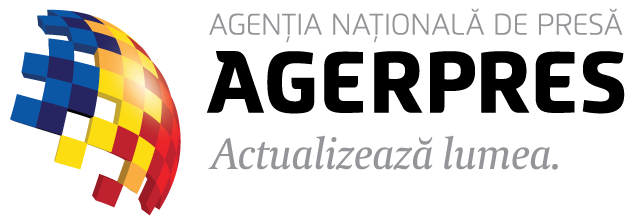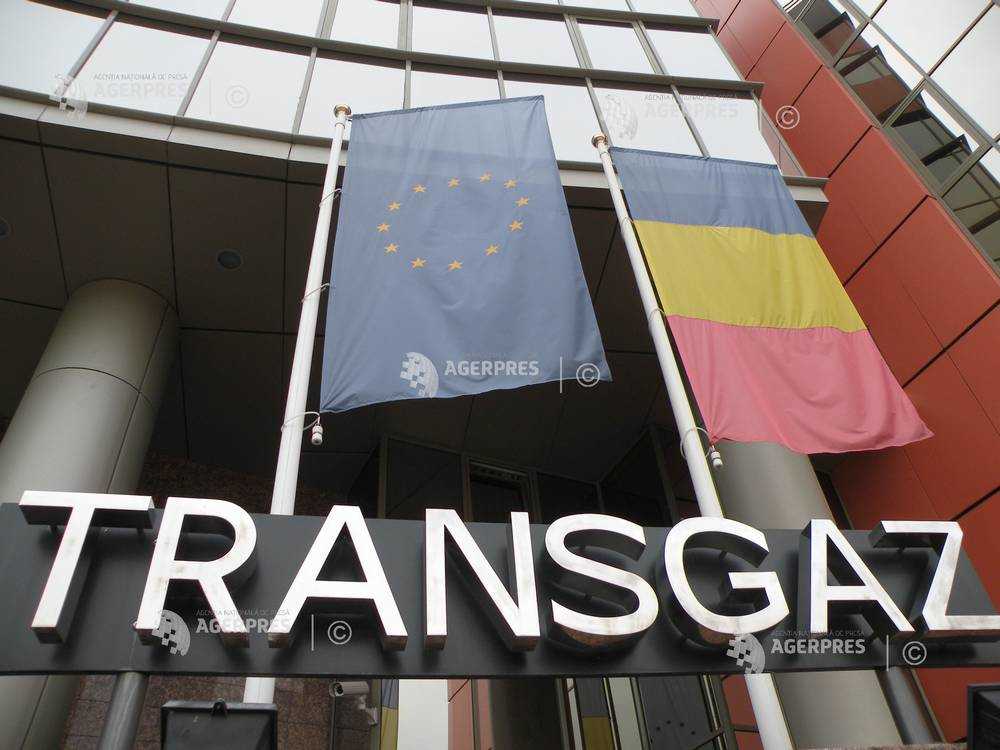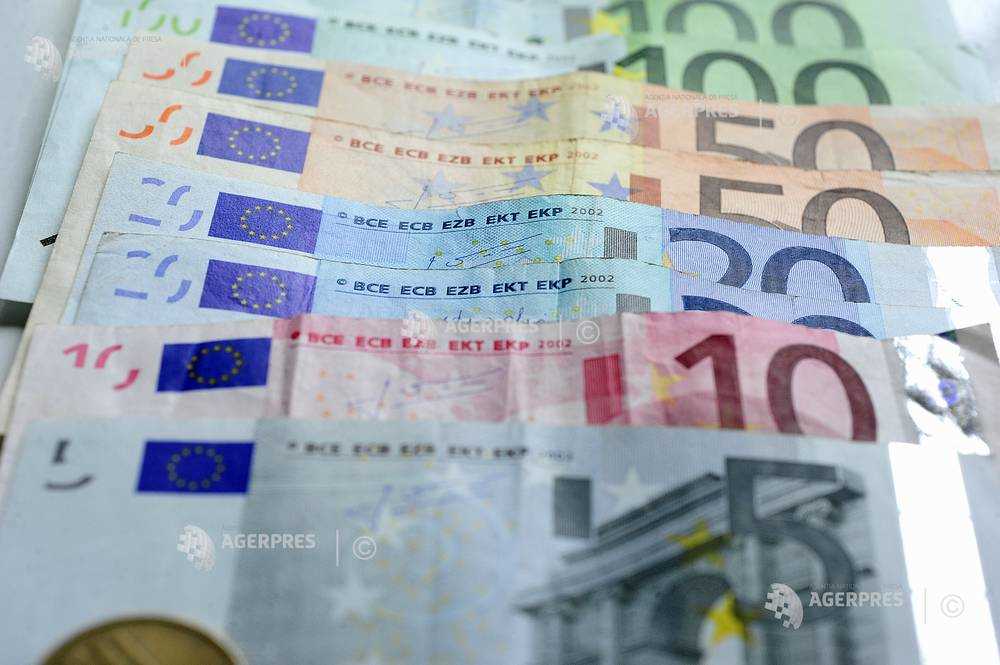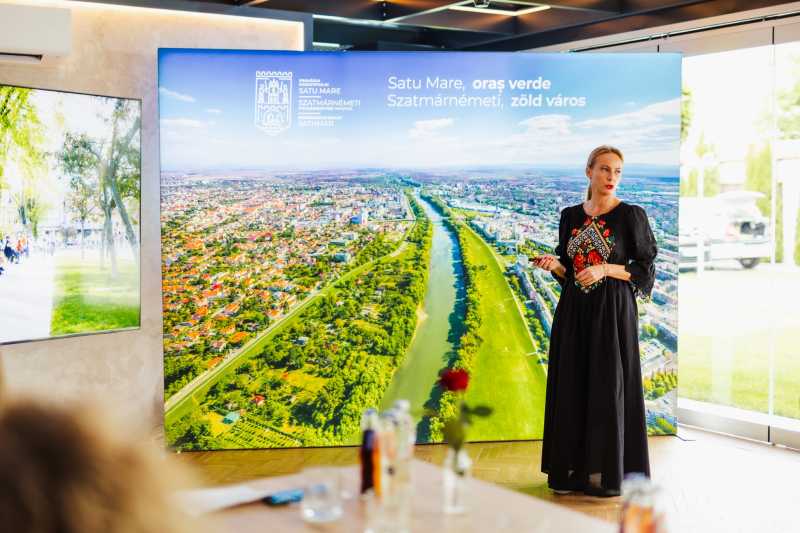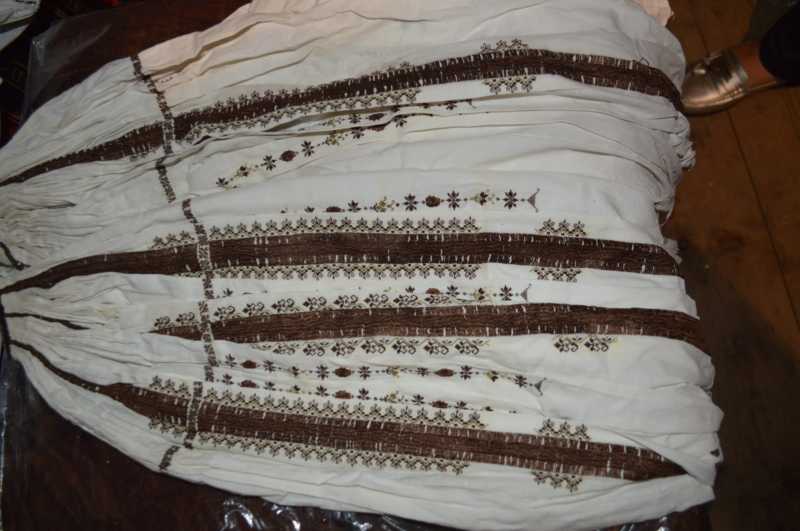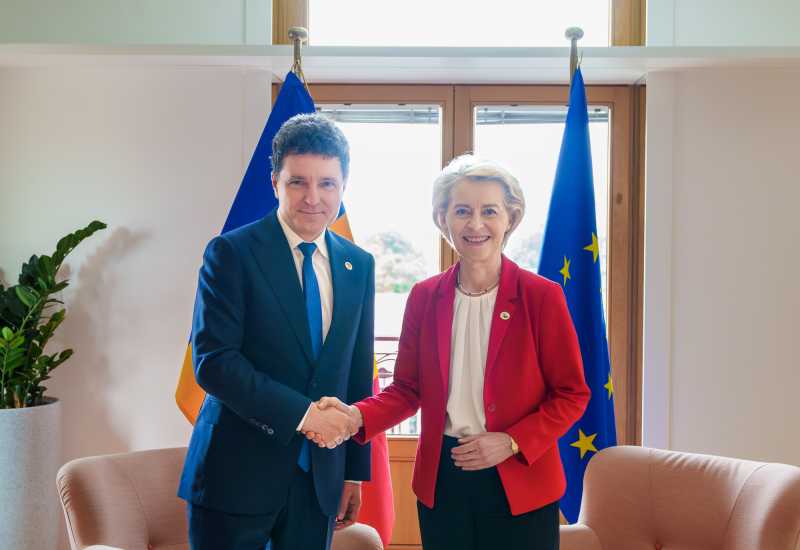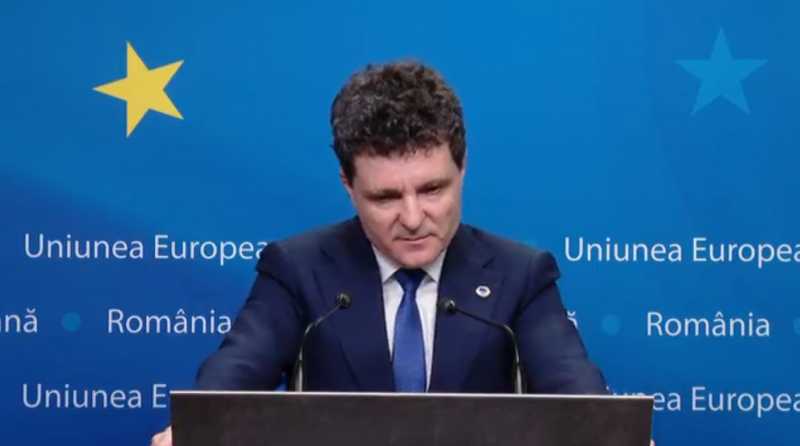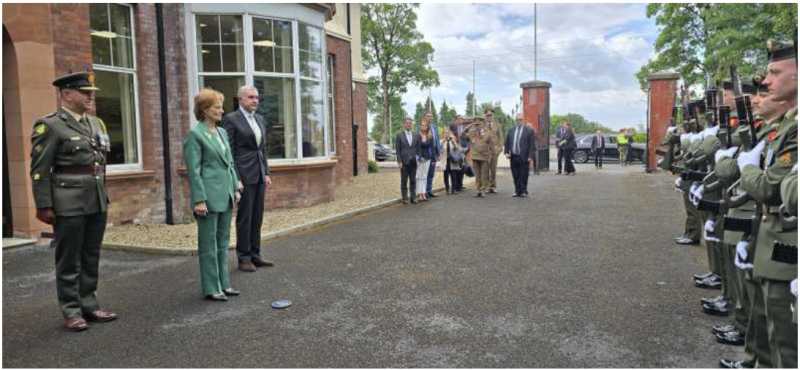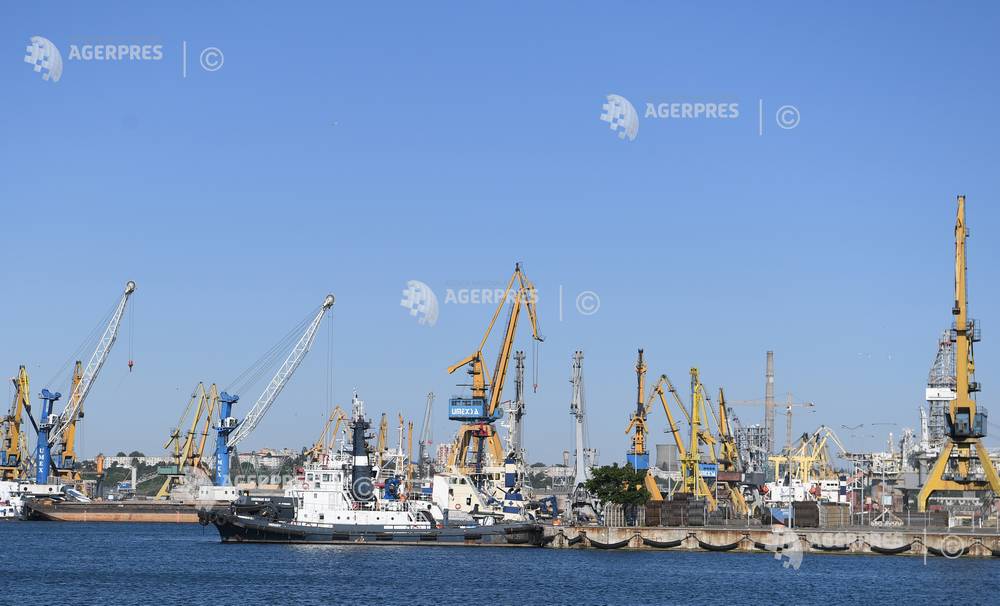Bulgaria's eurozone journey: Opportunities and challenges of adopting the euro (enr)
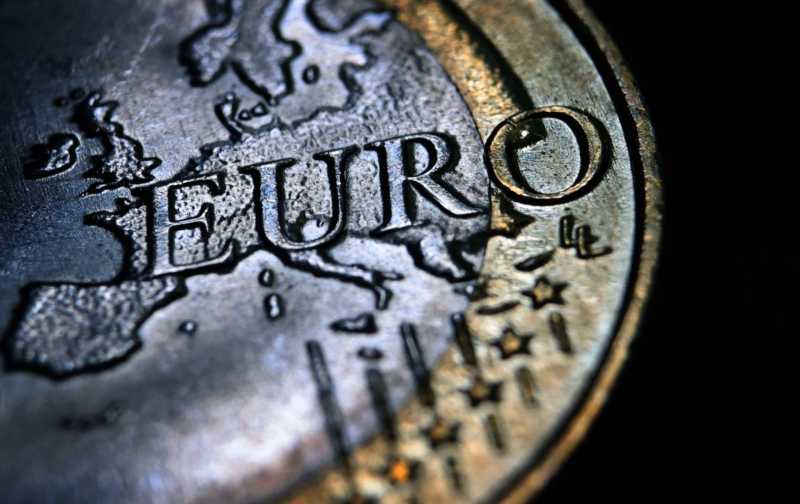
As Bulgaria is set to adopt the Euro, what are the expectations and fears of the country's citizens? What lessons can be learnt from other Eurozone members - or even those who opted out?
January 1, 2002 was a day of shiny new coins and banknotes, but also of confusion and advanced math at times: On that day, the common EU currency, the Euro, in its physical form had been launched in 12 member states.
Following several years prior to that being used only as an accounting currency, the Euro finally made its debut among the then approximately 308 million citizens of the original Eurozone members Austria, Belgium, Finland, France, Germany, Greece, Ireland, Italy, Luxembourg, the Netherlands, Portugal and Spain.
An economic and monetary union had been a goal of the European Union for decades and since its launch the Euro has become a fixed part of the international financial system, hiccups such as the European sovereign debt crisis from 2008 to 2012 notwithstanding.
Bulgaria is the latest member state set to join the monetary union, currently consisting of 20 out of the 27 EU countries: In early June the Commission gave the green light in its Convergence Report for the country to adopt the Euro starting in January 2026, thus making it the 21st Eurozone member.
The Eurogroup then gave its recommendation, which was endorsed at an ECOFIN meeting, where the bloc's economy and finance ministers get together regularly. What's still needed is the seal of approval from the EU's heads of state and government at the European Council - expected this Thursday or Friday and a final decision on July 8, at the next ECOFIN. The latter needs unanimous approval of the Euro-Lev conversion rate, which the Commission is expected to propose on June 30.
Hope and nostalgia
The Commission said Bulgaria had fulfilled the strict criteria 'intended to ensure that a country is ready to adopt the Euro and that its economy is sufficiently prepared to do so'.
The decision was welcomed by other members: 'A common currency for another member of the European Union is a significant step for the economy of the entire union,' Slovak Finance Minister Ladislav Kamenický said.
The European Central Bank (ECB) also gave a positive opinion, hailing the EU'ss poorest member's 'tremendous dedication to making the adjustments needed'.
In order to adopt the Euro, countries have to bring their national legislation in line with relevant EU law and meet specific conditions designed to ensure economic convergence. These so-called convergence criteria are macroeconomic indicators focusing on price stability, long-term interest rates, exchange-rate stability as well as sound and sustainable public finances.
Bulgaria with its 6.4 million inhabitants has spent several years preparing its economy, particularly bringing down its inflation. The country is already preparing with prices displayed in both currencies, updated ATMs and anti-speculation measures.
In Bulgaria itself the feelings range from jubilation in the government to a backlash on the streets: Prime Minister Rosen Zhelyazkov hailed the Commission's green light 'a remarkable day' that followed 'years of reforms, commitment and alignment with our European partners'. Representatives of trade unions, industry and banking are on board with the Euro.
Supporters of the pro-Russian opposition party Vazrazhdane repeatedly staged protests, demanding a return to more national sovereignty and keeping the national currency, the Lev. President Rumen Radev had also tried - and failed - to apply the brakes by proposing a referendum on joining the Euro in 2026. He questioned the timing of the adoption as he believes that Bulgaria needs more time to prepare.
Public favour seems to be waning, however. Eurobarometer's Spring 2025 survey found that 43 percent of Bulgarians are in favor of adoption, 3 percentage points down from the autumn survey. 50 percent are against the Euro, up by 4 percentage points from last autumn.
Bulgarians do see the advantages, without donning rose-tinted glasses. 'It will give us greater freedom and make traveling abroad easier,' a 36-year-old software developer who just gave her name as Akseniya said, though she added feeling 'a bit of nostalgia'. 'We are losing a bit of our identity, our Lev.'
The main concerns of Bulgarians are driven by a potential increase in inflation and the prices of the consumer basket goods. The government has started an information campaign, while the regulators are monitoring the prices.
From 12 to 21
Spain was among the first countries to adopt the Euro. The country's economy has profited from its membership in the bloc - it grew tenfold in 40 years of EU membership for example, despite remaining structural problems. The EU offered Spain a network of stability and discipline in times of crisis such as 2008.
Even though the country boasts stronger growth with 2.6 percent expected for 2025 than the Eurozone average - which the Commission put at only 0.9 percent in its spring forecast - there are challenges ahead:
The International Monetary Fund (IMF) earlier this month urged Eurozone countries with 'limited' fiscal space and high debt, including Spain, to adopt significant adjustments to their budgets, as they face 'spending pressures' associated with security and defense commitments and an aging population.
More than two decades after Portugal adopted the Euro, the country continues to weigh the benefits and challenges brought by its integration into the Eurozone.
The move was initially welcomed as a step toward modernisation and financial stability. However, the adoption of a shared currency also meant surrendering key tools of economic policy.
With monetary decisions centralised at the ECB in Frankfurt, Portugal lost control over interest rates and the ability to devalue its currency during times of crisis. This limitation became especially clear during the Eurozone debt crisis, when Portugal faced deep economic hardship and required an international bailout.
Many Portuguese citizens also recall a more immediate impact: the rising cost of everyday goods. Though official inflation data showed only moderate increases, public perception pointed to a noticeable hike in prices after the Euro's introduction - a sentiment that continues to influence public opinion on the single currency.
The Eurozone gradually grew to 20 with Slovenia joining in 2007, Cyprus and Malta in 2008, Slovakia in 2009, Estonia in 2011, Latvia in 2014 and then Lithuania in 2015.
Croatia was the most recent country to join in 2023. It became a eurozone member in 2023 during a period of high global inflation. But many citizens still blame high inflation on the Euro. The Croatian central bank says the country has benefited economically from the Euro, with its economy showing stability and resilience to global crises.
ECB President Christine Lagarde said last year that one of the reasons Croatia's inflation is among the highest in the Eurozone is partly because Croatia has one of the highest economic growth rates in the EU.
Euro, no thanks
Still there are a number of holdouts, who prefer their Krones, Korunas, Forints, Zlotys and Leu to the Euro:
Denmark, with its opt-out in the 1991 Maastricht Treaty, permanently excluded itself from joining the Euro, while the others are all theoretically 'enlisted'.
Sweden, despite not having a formal opt-out, voted against joining the euro in a 2003 referendum. It does not participate in the exchange rate mechanism, and in fact avoids joining indefinitely.
The Czech Republic, Hungary and Poland do not yet participate in the Euro area and show little movement in that direction. Romania might be more willing to join, but does not yet meet the necessary criteria.
The Czech government decided in April not to set a deadline for Euro adoption, despite meeting three of the five criteria last year. The reasoning behind that decision is not based on economics, Finance Minister Zbynek Stanjura said.
'You will not find clear economic reasons for and against adopting the Euro, and the experience of other countries that have adopted the Euro in the past shows that the key factor is the support of the population,' the minister said. 'In the Czech Republic, just a quarter of the population now supports the introduction of the Euro and unless support increases to at least 50 percent, abandoning a national currency with such a long tradition does not make sense in my opinion.'
Euro without the EU
Bosnia and Herzegovina is formally far from introducing the Euro - it is not an EU member yet, nor has it met the minimum Maastricht criteria. However, through a currency board arrangement, the Bosnian convertible mark (BAM) is pegged to the Euro, which already provides many of the benefits: low inflation, a stable exchange rate, and avoidance of currency risk.
Experts warn that the unilateral adoption of the Euro without joining the EU carries significant risks - namely, the loss of control over monetary policy and the possibility that even the smallest shock in the Eurozone could be transmitted to BiH without any adjustment mechanisms. On the other hand, according to data from the Central Bank of BiH, citizens' savings in Euro amount to 6.7 billion BAM, which demonstrates strong confidence in the Euro.
Digital confusion
Meanwhile, plans by the European Central Bank to introduce a 'digital Euro' are repeatedly the target of misinformation.
The digital Euro would in essence be a form of cash backed by the ECB. There has not been a decision on its introduction or timeline yet, but talks about preparations regularly spark false claims by Eurosceptics, claiming that this would mean the abolition of cash and total financial surveillance of citizens.
The content of this article is based on reporting by APF, ANSA, BTA, CTK, dpa, EFE, FENA, HINA, LUSA, TASR, as part of the European Newsroom (enr) project. AGERPRES (editing by: Simona Klodnischi)
The content of the www.agerpres.ro website has the exclusive purpose of public informing.
All the information published on this website by AGERPRES is protected by relevant legal dispositions.
It is forbidden to copy, reproduce, recompile, decompile, distribute, publish, display, modify, create derived components or products or full services, as well as any exploitation of the site's content.
Details in the section Terms of Use. If you are interested in picking up AGERPRES news items, please contact the Marketing Department – [email protected].
The use of the Comments section entails your obligation to respect the AGERPRES terms and conditions in regards to the publishing of comments on the www.agerpres.ro.
Other news in category
David Popovici secures bronze in 50m freestyle at European Aquatics U23 Swimming Championships
Romania's David Popovici swam on Friday the men's 50m freestyle at the European Aquatics U23 Swimming Championships in Samorin (Slovakia) in 21.86 seconds, securing the bronze. Portuguese Diogo Riberiro finished the sprint in 21:67 and took home the gold, while the silver went to Ukrainian Vladislav Buhov - 21:74. Popovici had finished t
Transgaz, JP Srbijagas sign memorandum of understanding
Romania's National Gas Transmission Company Transgaz and Republic of Serbia's JP Srbijagas on Friday signed a memorandum of understanding that outlines the framework and basic principles for the coordination of the activities to be carried out between the two companies. According to a press release sent to the Bucharest Stock Exchange, the memorandum w
Gov't to unveil gov't deficit narrowing measures next week
Prime Minister Ilie Bolojan said on Friday that a package of measures to narrow the government deficit will be unveiled next week. 'We will unveil the package of measures next week,' the prime minister said after a government meeting. He added that Romania is in a difficult situation from an economic point of view. 'Ro
Employment agency draws over EUR 270 million in additional labour market European funds
Romania's National Employment Agency (ANOFM) has attracted additional non-repayable European funds worth EUR 270.355 million for the development of projects to support access and maintenance on the labour market, for integrated and customised measures for youth employment. 'Compared with the initial allocation of approximately EUR 1 billion from the Ed
Satu Mare joins Entente Florale Europe competition
An international jury made up of specialists in urban landscaping and ecology on Friday convened in the Romanian city of Satu Mare, a city that has registered this year in the 'Entente Florale Europe' competition. According to the city, this European competition is dedicated to cities and communities that invest in improving the quality of life by deve
CulturMedia National Federation: Government strikes at those who really work
The National Federation of Culture and Media Trade Unions CulturMedia 'firmly' denounces the contempt of the Government for employees in the field of culture, whom it wants to force into a new 'sacrifice curve'. 'It is absolutely outrageous that the Government continues to ignore the real problem of the public budget - the chronic waste, po
President Dan convenes CSAT meetingJune 30, tax evasion, situation at Praid Salt Mine, on agenda
President Nicusor Dan has convened the meeting of the Supreme Council for National Defense (CSAT), set to take place on Monday at the Cotroceni Presidential Palace, the Presidential Administration announced. According to the cited source, on the agenda of the CSAT meeting, which will take place at 12:00, are included topics related to: * the sta
'Royal ie', designed after ie worn by Queen Marie, recreated in textile traditions workshop in Alba County
The 'royal Ie', recreated after the design of an ie (Romanian folk blouse) worn by Queen Marie of Romania, is one of the most requested pieces of clothing of this kind at a textile traditions workshop in Alba Iulia, opened ten years ago with European funds by ethnographer Petruta Pop. Involved in the preservation and valorization of the intangible cult
President Nicusor Dan, EC President Ursula von der Leyen discuss PNRR, measures to reduce deficit
Brussels, 27 June - AGERPRES special correspondent Oana Ghita reports: President Nicusor Dan told a press conference in Brussels on Friday that he had discussed with President of the European Commission Ursula von der Leyen about the National Recovery and Resilience Plan (PNRR) and the reduction of Romania's budget deficit. The two officials met on the sid
President Dan, after European Council meeting: There was reiterated the support for Ukraine
AGERPRES special correspondent Oana Ghita reports: The European Union member states reiterated the support for Ukraine, President Nicusor Dan told a press conference on the night of Thursday to Friday, after the meeting of the European Council. 'In a declaration adopted among 26 states out of 27, there was reiterated the support for Ukraine and the Union&#
David Popovici races to gold in 200m freestyle at European Aquatics U23 Swimming Championships
Romanian David Popovici clinched the gold medal in the men's 200m freestyle on Thursday at the European Aquatics U23 Swimming Championships in Samorin (Slovakia), clocking in at 1:43.64. Popovici was almost three seconds faster than the runner-up, Bulgarian Petar Mitsin (1:46.48), and Britain's Charlie Hutchison completed the podium with the time of 1:
Hospitality industry official says plans to raise VAT rate on tourism to blanket 19 pct are ill-advised
Increasing the VAT on tourism to 19% is an ill-advised measure and the first to be sacrificed appears to be incoming tourism, vice president of Romania's National Travel Agencies Association (ANAT) Adrian Voican told AGERPRES on Thursday on the sidelines of a tourism event. 'It is clear that the government has to do something, we are all aware of this,
Romanian Royal Family, welcomed by Guard of Honour at Kildare military base in Ireland: A lot of things unite us
AGERPRES special correspondent Florin Zafiu reports: Her Majesty Margareta, Custodian of the Romanian Crown, and His Royal Highness Prince Radu were welcomed, on Thursday, by the Guard of Honour at the Kildare Military Base in Ireland, as part of the official visit that the Royal Family is currently paying to Dublin. The Royal Family representatives visited th
Constanta Port, nodal point in trade with Black Sea, Western Balkans, Asian countries (official)
The Port of Constanta is a nodal point for trade with the countries in the Black Sea region, the Western Balkans and Asia, Chairman of the Chamber of Commerce and Industry of Romania (CCIR) Mihai Daraban said on Thursday at the Romania-Japan Business Forum. 'The Port of Constanta today is much more than a simple transport infrastructure - it is a strategic
